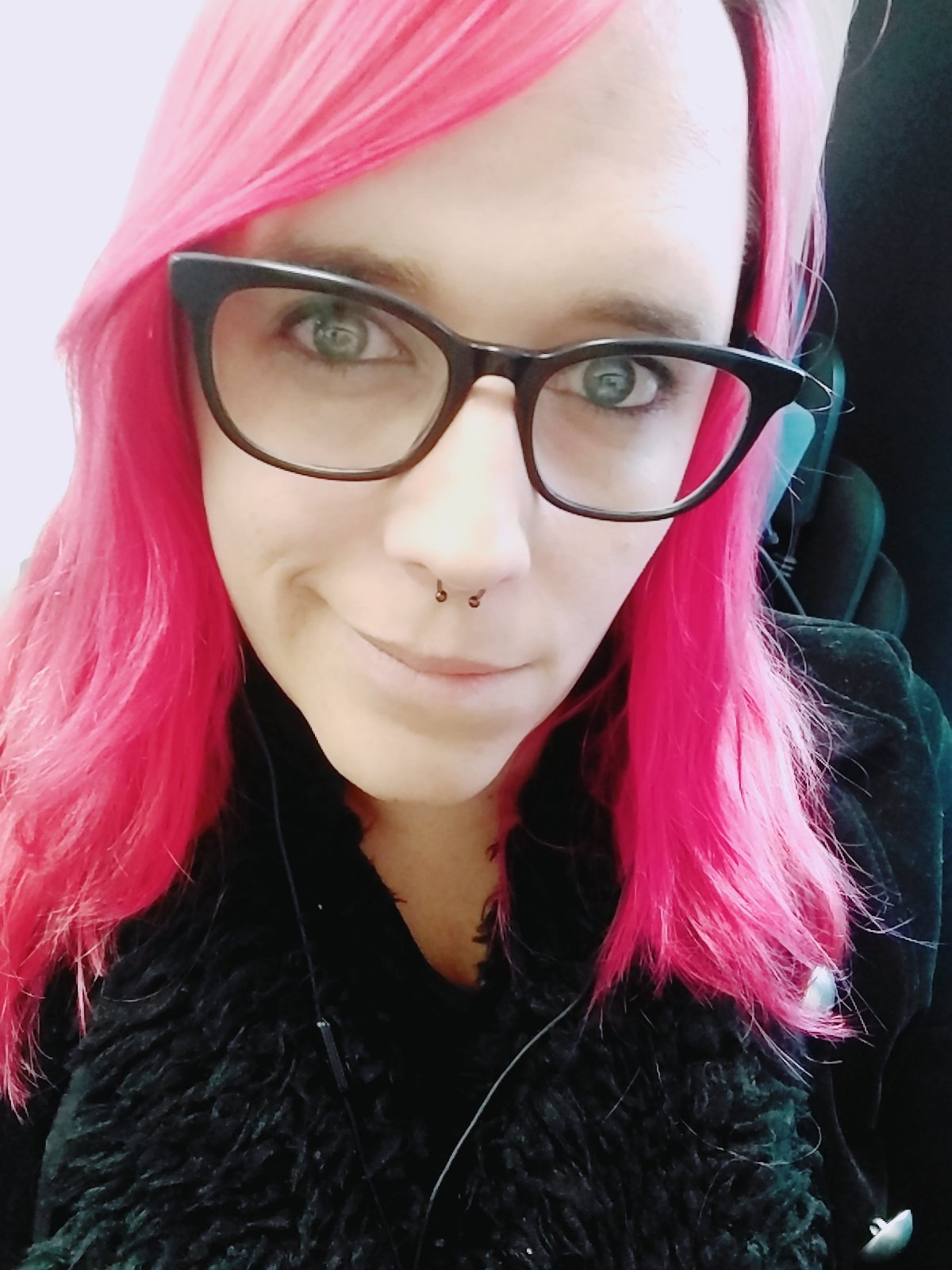Fae Daunt

- Role: Lecturer
- Company: SAE Melbourne
- Location: Melbourne, Australia
We chatted with Fae Daunt, a Lecturer at SAE Melbourne!
QRM: Can you tell us a little bit about who you are and what you do in the games industry?
Fae: I'm a full time games lecturer, helping to teach students how to move into the game's industry as well as support them on their journey. Outside of work I focus on helping out indie companies as well as work on my own projects, mainly focuses on narrative heavy games.
QRM: How long have you been involved in the game industry, and what projects have you worked on? What are you working on currently?
Fae: I have been involved in the industry very vaguely for 6 years (making small indie games) but it took off 3 years ago when I very rapidly helped Defiant Development with a 8 day build for their website leading up to announcements about HoF 2 at PAX. Since then I have been working on indie games that you can find on my website!
QRM: What inspired you to get started in the games industry?
Fae: Honestly I had given up before I even begun. It was something I always wanted to do, but instead focused on application development as I was sure it could give me a full career. But spur of the moment submission to become a lecturer snowballed me forward into the games industry thanks to inspiring examples that gave me a hand up.
QRM: In what ways do you feel your experiences as a queer person manifest in the games you work on, and influence the work you do?
Fae: The obvious answer here is that I tend to include a couple of queer characters, but in truth it's a combination of understanding the importance of diversity (even outside the queer sphere) and the importance of researching cultures before writing characters that exist in them. So many writers have gotten queer representation wrong that this mistake is not something I want to repeat for any other under-represented groups.
QRM: Do you have a favourite queer character—in games or media more generally? If so, what is it about them that makes them your favourite?
Question asked by @kamienw.
Fae: Gosh that's a really hard question. Ok I have two answers: Venus from We Know the Devil is... there is something about that character that just rings true and hurts my heart. It's good representation and it's done really well. The Boss from Metal Gear Solid is just... wow. It's not the best representation, but as a character she is so powerful. They mix in her motherhood, her queerness, but it's just a part of the overall character who is a bad ass bitch. There's something about the fact that she is queer is just a part of her and not her character that I really appreciate.
QRM: Have you ever encountered roadblocks in trying to include queer characters in games? What do you think is preventing greater diversity within games?
Question asked by @dustinalex91.
Fae: As an indie developer, not at all! This is something that drives me to continue working for either myself or small companies, the likeliness of getting queer characters in a game is so much higher.
QRM: Why do you think it is important that queer audiences are able to see themselves represented in the games they play, and in the developers who make the games they see? What can we do to improve the industry for queer audiences and devs?
Fae: See, although I understand that queer audience need representation for themselves in games, I feel that the greater advantage of diversity is that players tend to develop empathy for the characters they play. Having queer main characters actually creates a better and more empathetic world for us to live in.
QRM: Have you ever mentored somebody in your role in games, or been mentored? If so, what made these experiences worthwhile for you?
Question asked by @pepelanova.
Fae: Having a mentor doesn't just help for someone to ask questions of, but it actually gives you a hand up in the industry. Things like submitting GCAP talks would have been so much harder if I didn't have someone to email and ask 'Who do you think would be a great fit for this panel'.
QRM: In what ways can non-queer folk increase and support queer diversity present within games, as well as in the industry more broadly? How can we all work to support intersectional approaches to diversity, and why is this important?
Fae: This is two fold. Write queer characters, and get them checked by queer individuals. If you see behaviour in the workplace that is crushing diversity, speak up. It's really important that non-queer folk step up and help us out, voices from inside the community can always be written off as 'defensive', but voices from outside the community are a whole different story.
QRM: Is there a message that you would like to share with the queer game players, game studies researchers, and other interested folks who comprise the Queerly Represent Me community?
Fae: Don't compromise, keep fighting! You got this.
*
You can find Fae on Twitter @CallieRansom.
You can also see more about her work on her website!
